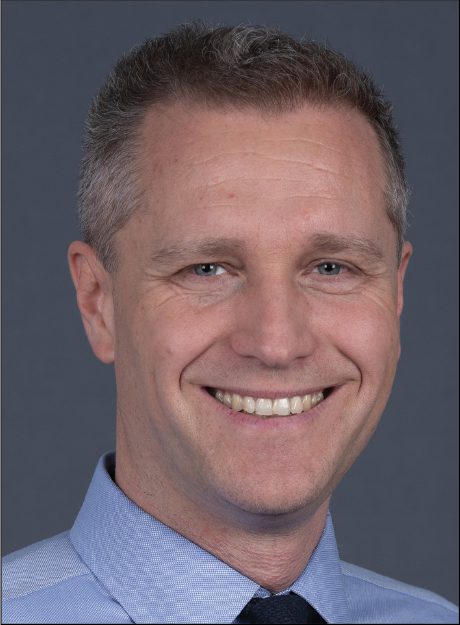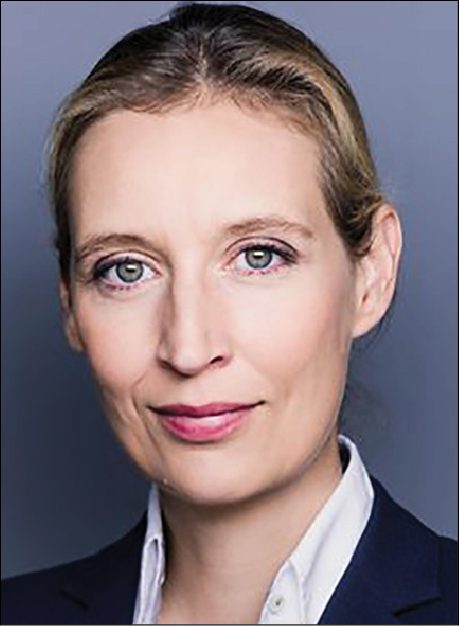


Despite alleged links with foreign powers and remarks about the SS, leading to France’s National Rally pulling out of an alliance with the party in the European Parliament, Germany’s AfD made significant gains in the Euro elections. Dr Kat Williams and Dr Siobhán Hyland report
The Alternative for Deutschland (AfD) election campaign for the European Union (EU) parliament got off to a shaky start when two of its candidates, Maximilian Krah and Petr Bystron, became embroiled in controversy: an aide for Krah was arrested on charges of spying for the Chinese government, and the constituency offices of Bystron were raided following allegations of money‑laundering and bribery.
Jian Guo, Krah’s long-time aide, was also suspected of spying on opposition figures in Germany and was arrested in Dresden earlier this year. Unsurprisingly, China’s foreign affairs ministry has vehemently denied that Guo was involved in espionage on behalf of the Chinese state. Krah himself, as reported by Euronews.com, has denied all knowledge that his aide was a double agent, stating that he first found out about the case when it was initially reported in the German press.
Alongside this, BBC News stated that Krah has come under intense political and media scrutiny for allegedly claiming that members of the SS (Schutzstaffel) could not automatically be called “criminals”, and that their culpability in the genocide of six million Jews during the Second World War could only be assessed on an individual basis.
As a result of these remarks about the SS, Marine Le Pen’s far-right National Rally (Rassemblement National, RN) — arguably in an attempt to repudiate its own history of Holocaust denial under the tenure of Le Pen’s father, Jean-Marie Le Pen — announced that it is no longer prepared to sit with the AfD in the EU parliament.
Talking to French radio about the controversy, Le Pen stated that establishing a “cordon sanitaire” between the parties was an urgent task. Subsequently, the AfD was thrown out of the Identity and Democracy (ID) group in the EU parliament. In light of all of this, Krah stepped back from campaigning for the EU elections but stopped short of withdrawing from the race altogether, remaining the AfD’s lead candidate.
Kremlin cash
Bystron, second candidate on the AfD’s EU election list — and considered one of the most pro-Russian AfD members — stands accused of receiving Russian bribes in exchange for political influence. Despite Bystron’s denials, BBC News reported that the Czech intelligence service is said to hold an audio file in which he is allegedly heard counting €20,000 (£17,000) worth of cash given to him by a pro-Kremlin Ukrainian businessman.
According to a report in Czech newspaper Denik N, Bystron has been in contact with the pro-Russian Voice of Europe network, an organisation considered part of the Kremlin’s concerted efforts to spread disinformation and pro-Russian rhetoric within the EU.
Bystron and his pro-Russian colleagues within the AfD have routinely opposed sanctions against Russia following its invasion of Ukraine in 2022 and have argued against Germany subsequently supplying weapons to Ukraine. In a parliamentary debate, Bystron went so far as to compare the latter with the war waged against the Soviet Union by Nazi Germany.
In light of these allegations, the Bundestag, the German federal parliament based in Berlin, has lifted Bystron’s parliamentary immunity, meaning that criminal proceedings could be brought against him if the charges are proven.
True to form, party leaders Alice Weidel and Tino Chrupalla have claimed that the raid and subsequent exposé of Bystron’s alleged activities are an attempt on the part of the German state to unfavourably influence the AfD’s EU election chances.
Voters undeterred
Despite the controversies in which the AfD has become embroiled in recent months, its results in the EU parliament elections surpassed expectations: it gained over 16% of the vote, beating Olaf Scholz’s Social Democrats (SPD) and coming second overall behind Friedrich Merz’s Christian Democrats (CDU). The CDU also came second to the AfD in eastern Germany, where key regional elections will take place in September.
The AfD’s strategic narrative of victimisation appears to have struck a chord with some voters seemingly concerned about so-called politically motivated attacks on the party from judges and Germany’s domestic intelligence services in relation to the party’s alleged links to right-wing extremism in recent years. Additionally, the AfD’s shrewd use of social media platforms such as Tik-Tok has seen it increase its vote share among younger voters.
Following the AfD’s success at the EU elections, Weidel has called for a vote of confidence and new parliamentary elections, similar to the steps taken by French leader Emmanuel Macron after his centrist Together alliance was trounced at the polls by Le Pen’s RN following the EU elections on 9 June 9. This, however, according to DW.com, has been ruled out by the incumbent coalition, with the German federal elections expected to take place in the autumn of 2025 as planned.
Photos: AfD MEP Maximilian Krah (above left) and Bundestag member Petr Bystron (centre) have been accused of dealings with foreign powers. AfD leader Alice Weidel (right) claimed the accusations against Bystron were part of government attempts to sabotage the party’s EU election chances
This article first appeared in the Summer 2024 issue of Searchlight





